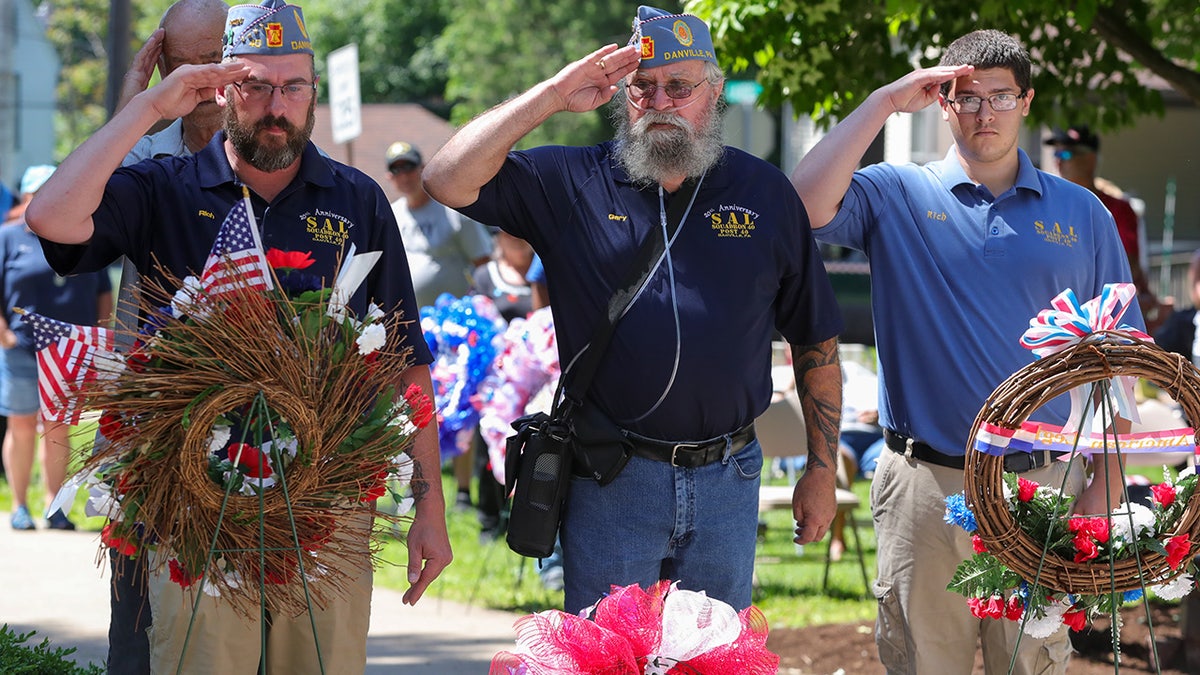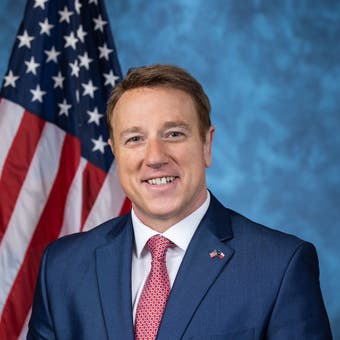Janice Dean visits the Intrepid Museum ahead of Memorial Day weekend
Janice Dean speaks with USO Northeast Regional President Rebecca Parkes about the kickoff of 'Fleet Week' and the Parade of Ships in NYC.
High above the clouds on January 31, 1944, Second Lieutenant James Galliher was seated in the cramped front of his B-24 Liberator as it approached Udine, Italy. A 27-year-old assigned to the 717th Bomb Squadron of the 449th Bombardment Group, his unit’s target was the German airbase at Aviano.
Galliher’s mission was part of the Army Air Force’s strategic bombing campaign over Europe, which began in 1943. And while it was beginning to bear fruit, it had come at a staggering cost. By the Second World War’s end, some 88,000 American airmen would be lost, indicating a particularly devastating casualty rate.
The bright skies above Aviano soon turned to a hell of black aerial bursts as German flak batteries bombarded the 717th’s formation. Since the start of the campaign, the bombing raids had intensified and the Army Air Force had begun to lose more crews to anti-aircraft fire. The raid on Aviano would be no different.
Galliher’s plane, the Lurchin Urchin dropped nearly three tons of ordinance on the target, striking German aircraft hangers and buildings. In the lead of the formation and carrying the unit’s commander, Col. Darr H. Alkire, the crew turned home. But once again, the sky became filled with the steady roll of dark, deadly clouds of flak. Lurchin Urchin was struck in the nose and entered a steep, uncontrolled dive. Of the 11 men aboard the B-24 Liberator, nine parachutes were seen to deploy from the plane. James Galliher was not among them.

FILE-- Members of American Legion Post 40 salute after placing a wreath during the annual Memorial Day service at Memorial Park. Community organizations and military veterans take part in the annual Memorial Day parade and service. (Photo by Paul Weaver/SOPA Images/LightRocket via Getty Images)
My family and I discovered Uncle James’ wartime photo while sorting through a host of other items and relics in my mother’s attic. Credit goes to my aunt for knowing exactly who he was, and this sparked an effort to learn more and remember his story. Maybe it’s fate that we found his photo, but Uncle James deserves to have his story told, along with those of countless others who died serving our country.
While his fellow crew members that escaped the crash were captured and survived the war, Uncle James was at first listed as Missing in Action. Like many other American bomber crewmen that went down during WWII, there was simply no way to know for sure whether he had been killed. This classification, no doubt left surviving squadron mates with little peace of mind. For the families back at home, who would within weeks receive a telegram informing them of the uncertain fate of their loved one, the anguish would have been even worse.
CLICK HERE FOR MORE FOX NEWS OPINION
It would not be until April 1945 that Uncle James was presumed dead and officially listed as Killed in Action. A hometown newspaper article from the time details how his mother, Margaret, received his Purple Heart posthumously, and Mass was held at his local parish in his honor.
This Memorial Day, the most important thing we can do as Americans is to strive to never forget our fallen. This includes not only visiting their graves and places of remembrance, but by making it a point to ensure their stories are not forgotten.
It’s said that oral history can be lost within three generations. I believe this can often hold true for family history as well. If you have children or grandchildren, it’s always worth it to tell them about those in your family who have served, or even made the ultimate sacrifice. If you are that child or grandchild, it’s not a bad idea to ask. No one is at fault here, but we should never lose sight of the fact that Memorial Day is for more than the unofficial beginning of summer, it's a day to reflect and remember those who came before.
CLICK HERE TO GET THE FOX NEWS APP
I can think of no better model citizens than my uncle, Second Lieutenant James Galliher, and the millions of others who rose to the occasion to defend our homeland. It’s up to us to honor our nation’s fallen by upholding the values of the Republic they died to protect. It will always be up to us as citizens to be informed and involved in order to preserve a free and prosperous America. This starts with knowing both our family and country’s past.
We owe it to those who have laid so costly a sacrifice upon the Altar of Freedom. They deserve to be remembered, always.










































